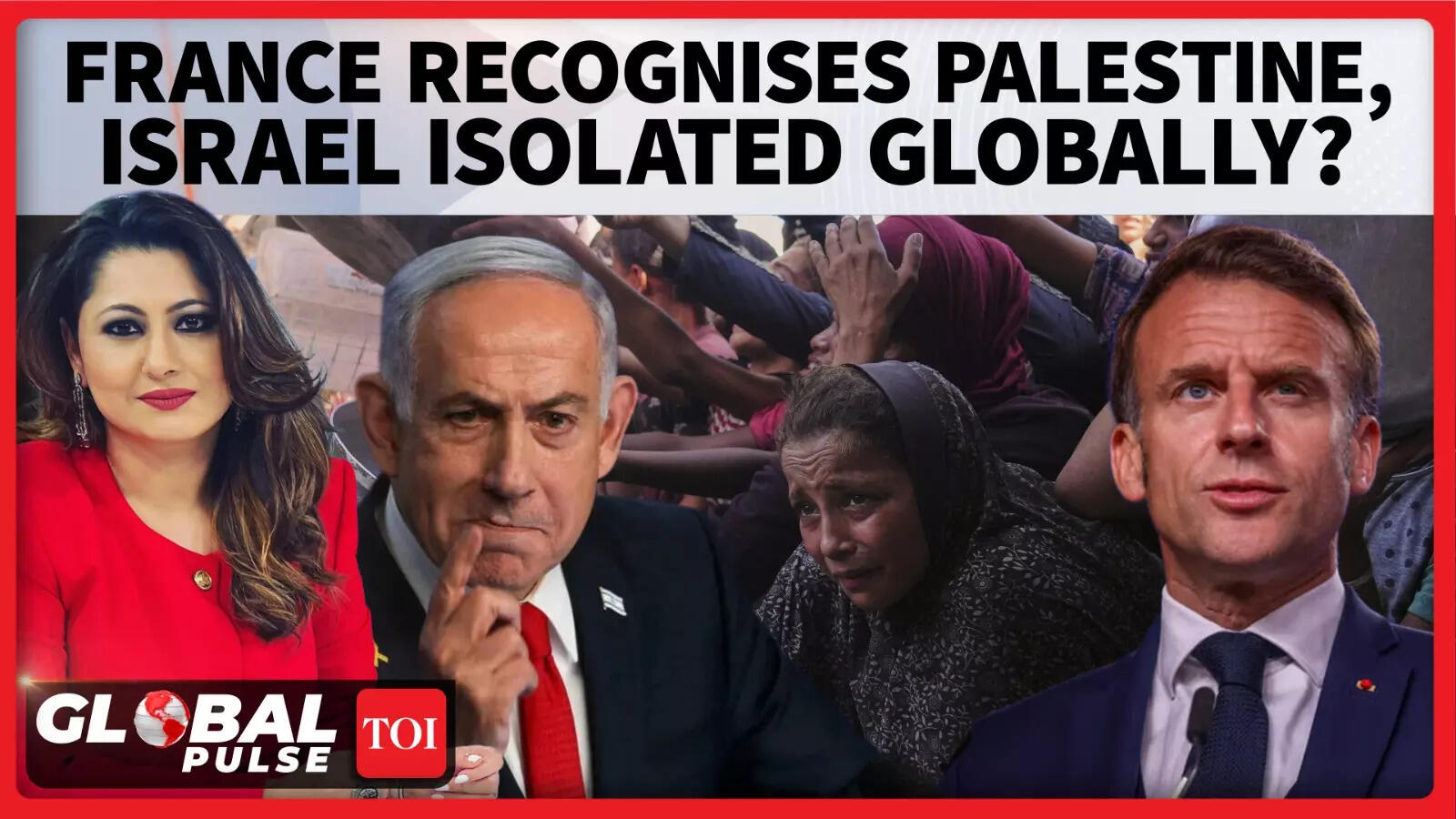Top Stories
France and Allies Recognize Palestinian State Amid Gaza Conflict

The ongoing conflict in Gaza has prompted a significant geopolitical shift, with France and several NATO allies formally recognizing the state of Palestine. This recognition, announced during a United Nations summit on October 23, 2023, raises questions about Israel’s position on the global stage as it continues its military operations in the region.
As the humanitarian crisis in Gaza intensifies, with widespread starvation and a famine declared by the United Nations, the conflict approaches its two-year mark. The UN has also accused Israel of committing genocide against the Palestinian population in the enclave. This dire situation has led to a growing chorus of nations expressing support for Palestinian statehood.
During the summit co-chaired by France and Saudi Arabia, countries such as Monaco, Malta, and Luxembourg publicly declared their recognition of a Palestinian state. Belgium followed suit, although it stipulated that its recognition would only take legal effect if Hamas is removed from power and hostages are returned. This series of endorsements marks a notable shift in international diplomatic relations concerning the Israeli-Palestinian conflict.
Israeli Prime Minister Benjamin Netanyahu has voiced strong opposition to these developments. His government perceives this recognition as a challenge to Israel’s strategy and its ongoing military objectives in Gaza. The Israeli administration has consistently maintained that any recognition of Palestine must be contingent upon the establishment of security measures, particularly against groups like Hamas.
The growing support for Palestine among Western nations signals a potential realignment of traditional alliances. As Israel expands settlements in the occupied West Bank, the political landscape could shift further, leading to increased isolation for the Israeli government. The recognition of Palestinian statehood highlights the complexities of achieving a two-state solution, which many countries still advocate as the preferred resolution to the conflict.
French President Emmanuel Macron emphasized the need for a sustainable peace process, stating that recognition of Palestine is a step towards addressing long-standing grievances. He called for renewed dialogue between Israeli and Palestinian leaders, urging both sides to seek a resolution that honors the rights and aspirations of both peoples.
The implications of this recognition extend beyond diplomatic gestures. As the humanitarian situation deteriorates in Gaza, global leaders face mounting pressure to respond effectively. Humanitarian organizations have raised alarms about the conditions on the ground, urging immediate action to alleviate suffering.
In this context, the actions of France and its allies could represent a pivotal moment in international relations concerning the Middle East. As nations navigate their positions amid this complex conflict, the future of Israeli-Palestinian relations remains uncertain. With the international community increasingly vocal about the need for change, the dynamics of this longstanding conflict could experience significant transformations in the coming months.
-

 World5 months ago
World5 months agoSBI Announces QIP Floor Price at ₹811.05 Per Share
-

 Lifestyle5 months ago
Lifestyle5 months agoCept Unveils ₹3.1 Crore Urban Mobility Plan for Sustainable Growth
-

 Science4 months ago
Science4 months agoNew Blood Group Discovered in South Indian Woman at Rotary Centre
-

 World5 months ago
World5 months agoTorrential Rains Cause Flash Flooding in New York and New Jersey
-

 Top Stories5 months ago
Top Stories5 months agoKonkani Cultural Organisation to Host Pearl Jubilee in Abu Dhabi
-

 Sports4 months ago
Sports4 months agoBroad Advocates for Bowling Change Ahead of Final Test Against India
-

 Science5 months ago
Science5 months agoNothing Headphone 1 Review: A Bold Contender in Audio Design
-

 Top Stories5 months ago
Top Stories5 months agoAir India Crash Investigation Highlights Boeing Fuel Switch Concerns
-

 Business5 months ago
Business5 months agoIndian Stock Market Rebounds: Sensex and Nifty Rise After Four-Day Decline
-

 Sports4 months ago
Sports4 months agoCristian Totti Retires at 19: Pressure of Fame Takes Toll
-

 Politics5 months ago
Politics5 months agoAbandoned Doberman Finds New Home After Journey to Prague
-

 Top Stories5 months ago
Top Stories5 months agoPatna Bank Manager Abhishek Varun Found Dead in Well









